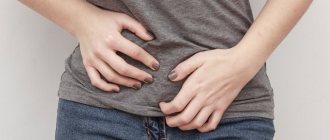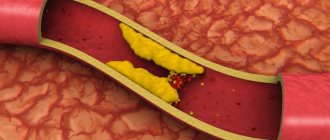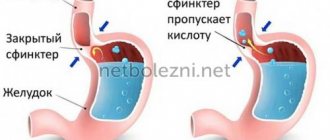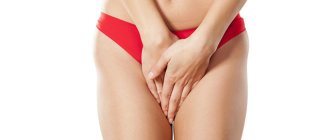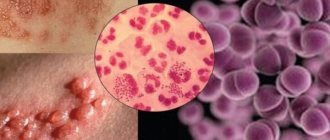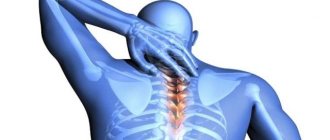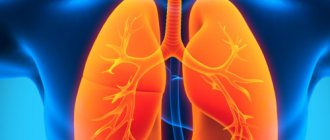Persistent heartburn in the throat is a burning sensation that occurs in response to stomach contents returning to the lower esophagus. In this case, irritation of the esophageal mucosa occurs with bile or acidic stomach contents. Almost every person has encountered this manifestation once in their life.
A huge number of factors, both pathological and physiological, can cause the formation of such a symptom. Quite often, heartburn is caused even by the consumption of certain foods and is often accompanied by other symptoms. The most common combination is constant heartburn and belching.
The expression of heartburn and other signs of the clinical picture can be eliminated with the help of conservative therapy, namely, taking medications, using traditional medicine, and also following a gentle diet.
Etiology
In most cases, the main factor causing heartburn is eating certain foods that promote reflux of stomach contents.
Between the stomach and esophagus is the sphincter, a muscle that allows food and liquids to pass into the stomach. In addition, it prevents the contents from the stomach from refluxing back into the esophagus. The sphincter also controls the passage of acidic gastric contents. It is when it does not function properly that gastric juice rises up the esophagus, which causes heartburn.
Other causes of persistent heartburn may include:
- frequent overeating - the larger the amount of food eaten, the more severe the heartburn and belching will be;
- eating immediately before bedtime. If all foods do not have time to be digested before bedtime, the work of the sphincter becomes much weaker. Against this background, a large amount of gastric juice rises into the esophagus;
- strong physical activity after a meal significantly slows down digestion;
- prolonged exposure to stressful situations;
- indiscriminate use of certain groups of medications;
- long-term addiction to bad habits;
- the period of bearing a child, as well as other conditions in which pressure in the abdominal cavity increases;
- wearing excessively tight clothing that puts pressure on the stomach;
- poor nutrition, when a person’s menu is dominated by fatty and spicy foods, as well as carbonated drinks and strong coffee.
But in certain cases, the appearance of heartburn may indicate pathological conditions. For example:
- the presence of a hiatus hernia;
- ulcerative lesions of the duodenum or stomach;
- toxicosis;
- oncology;
- duodenitis;
- gastritis with increased secretion of hydrochloric acid;
- neurosis and other disorders of the nervous system;
- cholecystitis;
- consequence of surgery.
Inconsistency between the diet and the age group of the child can contribute to the occurrence of heartburn in children.
However, only a specialist can determine why a person suffers from heartburn after performing a series of laboratory and instrumental examinations.
Symptoms
Depending on what caused persistent heartburn, it may be accompanied by additional symptoms, the presence and intensity of which will be individual for each person.
Signs of heartburn that accompany it include:
- bitter taste in the mouth;
- pain in the abdominal area;
- difficulty swallowing;
- frequent cough, especially at night;
- constant belching with an unpleasant smell of consumed food;
- loss of appetite - this is due to the fact that many symptoms occur after eating food;
- attacks of nausea and vomiting. Vomit may contain impurities of blood, mucus or pus;
- bowel dysfunction;
- fatigue;
- increased salivation.
Diagnostics
The goal of performing a set of diagnostic measures is to find out why constant heartburn appeared, and also to begin treatment for a particular pathology as soon as possible.
Often, diagnostics proceed according to the following scheme:
- the doctor’s examination of the patient’s medical history and life history;
- a detailed survey of the patient to collect complete information about the timing and intensity of the manifestation of unpleasant sensations;
- performing a thorough physical examination;
- appointment of general clinical and biochemical tests of blood, urine and feces;
- conducting tests to determine the level of acidity of gastric juice;
- examination of the gastrointestinal tract using ultrasound, endoscopy, biopsy, and radiography.
Depending on the results of the examination and the severity of the pathology, treatment can be carried out on an outpatient basis (at home) or in a hospital setting.
Treatment
After studying the results of laboratory and instrumental examinations, making an accurate diagnosis and determining the intensity of symptoms, the doctor decides what to do for heartburn and what methods to eliminate it. Treatment can be carried out using several methods:
- diet therapy;
- medicinally;
- folk remedies at home;
- surgically.
Treatment of the causes of persistent heartburn involves the use of medications such as:
- Antacids – aimed at neutralizing hydrochloric acid. They will not relieve the patient of the causes, but will significantly reduce the intensity of heartburn;
- prokinetics - for additional protection of the esophageal mucosa;
- PPI;
- antiemetics and painkillers.
The main components of heartburn treatment are adherence to proper nutrition and adherence to dietary therapy recommendations. First of all, patients should completely reduce the consumption of the following products:
- spicy, fatty and overly salty dishes;
- smoked meats and fresh baked goods;
- high fat dairy and fermented milk products;
- hot spices and sauces;
- chocolate and citrus fruits;
- fried tomatoes and eggs;
- carbonated and alcohol-containing drinks.
The heartburn diet involves cooking food in the most gentle ways, namely steaming, baking, stewing and boiling. The menu must include:
- rice and pasta made from durum wheat;
- steamed protein omelet or boiled soft-boiled eggs;
- dietary varieties of meat and fish, as well as broths based on them;
- weak tea.
In addition, good results can be achieved by using traditional medicine recipes, but only after consulting with your doctor. Such therapy involves the use of:
- potato juice;
- medicinal drinks made from flax seed;
- pumpkin seeds;
- carrot pulp;
- peas and oats;
- viburnum-based jam;
- chamomile and mint;
- calendula and fennel;
- dill and anise;
- calamus and licorice root;
- honey;
- soda;
- nuts;
- buckwheat;
- eggshell.
Surgical treatment is performed only when it is not possible to get rid of the causes of persistent heartburn using conservative treatment methods.
Basic treatment methods
In order to reduce stomach acidity and restore its normal functioning, it is recommended to take:
- antisecretory drugs that help reduce the amount of acid produced by directly affecting the walls of organs. Such drugs include Rabeprazole , Famotidine , Roxatidine , Lonsoprazole ;
- prokinetics (substances that stimulate motility of the esophagus and stomach). Itopra , Ganaton are examples of drugs belonging to this group of drugs.
Traditional medicine advises using potato juice - it contains substances that improve the condition of the stomach and reduce its acidity.
To use this method, you need to wash the potatoes and grate them, then use gauze to separate the juice. The starch will settle in three minutes, therefore, after the expiration of the above-mentioned period, you can drink the liquid on an empty stomach in its pure form or mix it with other types of juices.
Time of preventive procedures - a decade of admission alternates with a decade of rest (3 cycles). Activated carbon can also eliminate burning sensation. If a characteristic feeling occurs, you need to take several tablets (one piece per 10 kg of weight), after which it will remove the acids.
An excellent remedy at hand is honey , which, when applied to the inflamed mucous membrane, produces a calming effect and regenerates it. For treatment, you need to mix honey with aloe juice and take it 30 minutes before a meal.
Thanks to this, it will be possible to prevent the occurrence of heartburn after eating and, with regular use, prevent its occurrence in the future.
Complications
Since the occurrence of heartburn is caused by impaired functioning of the sphincter and the aggressive effect of acidic gastric juice on the mucous membrane of the esophagus, ignoring the symptoms can lead to the following consequences:
- ulceration of the membrane or the appearance of erosions;
- scarring and narrowing of the sphincter passage;
- internal hemorrhages;
- violation of the swallowing process;
- a sharp decrease in body weight;
- oncology.
Many of these complications, if not treated in a timely manner, can lead to death.
Why do I constantly suffer from heartburn?
The causes of constantly disturbing heartburn may be hidden in minor factors, or they may signal problems with the gastrointestinal tract (GIT), which need to be urgently addressed to avoid dangerous consequences. Reflux esophagitis is considered as the main provoking factor. The pathology develops gradually, manifesting itself as a result of the constant reflux of gastric contents into the esophageal cavity. Food gets there not only immediately after eating, but also after excessive physical exertion, bending over, or lifting heavy objects. Persistent heartburn can even occur due to improper sleeping posture.
What other factors lead to the development of symptoms:
- excess weight - due to the large volume of fat deposits, the internal organs are displaced and compressed, as a result, after a heavy lunch, some of the food flows from the stomach back into the esophagus, causing burning and pain;
- taking medications - these are mainly drugs that provoke increased production of hydrochloric acid (nitrates, beta-blockers, etc.);
- abuse of carbonated drinks and coffee;
- wearing tight clothing - it changes the position of the stomach, which causes acid to press on the sphincters and be thrown into the esophagus;
- habit of lying down after eating;
- lack of sleep, stress.
Attention! A small lifestyle adjustment, if heartburn is associated with poor diet, can completely eliminate the problem. If you have a constant burning sensation behind the sternum, you should visit a doctor and get examined for acute and chronic gastrointestinal diseases.
Poor nutrition and bad habits
When you regularly suffer from heartburn at night, it can be the result of an unhealthy diet, smoking and alcohol abuse. The main factor behind constant burning in the esophagus is overeating. When large portions of food enter the stomach once or twice a day, the walls of the organ are stretched, as a result of which the sphincters are unable to hold the contents inside. Heartburn also occurs when eating fatty, salty, smoked foods, fast food, baked goods, citrus fruits, Coca-Cola, strong tea and coffee.
Smoking is another factor that provokes the problem. Regular inhalation of tobacco smoke causes irritation of the mucous membrane, in addition to heartburn, a bitter taste in the mouth and painful sensations in the chest. Alcohol also harms the body, once again burning and corroding the epithelium of internal organs. In addition, alcohol abuse aggravates the course of existing gastrointestinal diseases and is dangerous for the development of liver problems.
Poor diet often causes heartburn
Gastrointestinal diseases
Heartburn, which constantly torments and causes discomfort, is not treated by many people, preferring to eliminate the symptom with improvised means. Although a burning sensation in the esophagus is the tip of the iceberg, signaling more serious diseases of the stomach and intestines:
- ulcerative lesions of the stomach and duodenum - against the background of the disease, the outlet of the digestive organ narrows, and the normal frequency of its contractions is disrupted. As a result, food takes a long time to digest, pressure on the stomach increases, and food goes back into the esophagus;
- gastritis - in most cases, the pathology occurs against the background of increased acidity, which provokes irritation of the mucous membrane and causes constant heartburn in the throat;
- biliary dyskinesia;
- pancreatitis and cholecystitis;
- hiatal hernia - heartburn bothers you when bending over and doing physical activity. The disease is manifested by expansion of the diaphragm due to neoplasm. The hernia can be so large that it creates pressure on the stomach and esophagus, and radiates pain to the back and heart.
Important! In the initial stages of gastrointestinal diseases, burning and discomfort appear irregularly, and they can be cured. Ignoring a symptom over the years can turn into a cancerous tumor, which is why it is important to start therapy in the early stages of pathologies.
Heartburn may be a symptom of a more serious condition
Diseases of other organs and systems
The cause of heartburn may be hidden not only in diseases of the gastrointestinal tract. Often similar symptoms are caused by pathologies of the hematopoietic system, neurology, cardiac problems and blood vessels. Against the background of non-compliance with the daily routine, frequent stress, and excessive physical exertion, dystrophy of the heart muscle develops, causing pain and burning behind the sternum. Signs of pathology of the heart and blood vessels are often perceived as heartburn and are not treated correctly, so it is important to be examined by a doctor if you have suspicious symptoms.
Psychosomatics
Heartburn often occurs in people who constantly experience nervous tension. Psychologists have long established a relationship between a person’s emotional background and the state of internal organs. So it is the stomach that is responsible for problems with self-doubt, complexes, and worries.
Frequent stress, chronic fatigue, lack of sleep - all this is complemented by snacking on the run and bad habits, causing not only heartburn, but also more serious gastrointestinal diseases. Sometimes, to eliminate a burning sensation in the esophagus, a person just needs to change his lifestyle, visit a psychologist and stop being nervous.
Pregnancy
Constant heartburn worries almost every woman when expecting a baby (especially in the third trimester). This is explained by the growing size of the fetus, as a result of which the uterus moves neighboring organs, the stomach contracts and throws the contents into the esophagus, bypassing the sphincter. Also, the symptoms are aggravated by hormonal changes occurring in the body of a pregnant woman.
Another cause of heartburn during pregnancy is non-compliance with the principles of rational nutrition. Doctors advise expectant mothers to eat fractionally, that is, in small portions, but often. Women neglect this recommendation, allowing themselves flour products, sour fruits, chocolate, which causes a burning sensation in the larynx and esophagus.
Heartburn often appears during pregnancy
What is heartburn
To avoid misunderstandings between doctor and patient, it is important to clarify the meaning of this term.
In medical literature, it refers to an unpleasant sensation of warmth or burning of varying duration and strength. The feeling of heartburn is usually located behind the sternum (in the middle of the chest) or directly below it, in the “episgastric” region. It is in this place that the stomach and the initial section of the esophagus are located, where pathological changes occur.
Normally, food passes through the digestive tract in one direction - from the mouth to the rectum. During this time, it undergoes serious chemical treatment: in the stomach it is exposed to hydrochloric acid, and in the small intestine bile and highly active enzymes appear.
There are no aggressive substances in the esophagus, so its walls are not protected from their effects. If a person experiences reflux of partially digested food in the opposite direction (reflux), this can lead to tissue damage and a burning sensation. Several such episodes per day can be observed in a healthy person.
Heartburn is a very common symptom caused by acid reflux, a condition in which some stomach contents (including acid) back up into the esophagus, creating a burning pain in the chest just behind the breastbone. Persistent acid reflux that occurs more than twice a week leads to the diagnosis of gastroesophageal reflux disease (GERD).
The stomach contains a strong acid that aids digestion and protects the intestines from unwanted microorganisms. The gastric mucosa is adapted to this acid and is protected from its action.
If there is a violation of the gastroesophageal sphincter, which prevents the exit of gastric contents into the esophagus, it regurgitates and causes symptoms of acid reflux, such as heartburn.
From time to time, everyone may experience heartburn, which is often associated with certain foods or drinks that stimulate the production of acid in the stomach:
- spicy food;
- onions;
- citrus fruits;
- tomato products such as ketchup;
- fatty or fried foods;
- peppermint;
- chocolate;
- alcohol, carbonated drinks, coffee.
Acid reflux that occurs almost every day and has other causes and risk factors is a sign of GERD. GERD can be found in patients of any age, and sometimes it has no apparent cause. Often the origin of heartburn is explained by lifestyle factors, but it can also have causes that cannot always be prevented.
Heartburn can occur with a diaphragmatic hernia, in which the upper part of the stomach penetrates through a hole in the diaphragm into the chest cavity. Acid reflux can sometimes be caused by pregnancy, as it causes increased pressure in the abdominal cavity. Other risk factors are easier to control and are often directly related to lifestyle or dietary modifications:
- Obesity.
- Smoking (active or passive).
- Consuming salt in large quantities.
- Small intake of dietary fiber.
- Low levels of exercise.
- Medicines including asthma medications, calcium channel blockers, antihistamines, painkillers, sedatives and antidepressants.
Heartburn is manifested by a burning sensation in the area behind the breastbone. It is worse when lying down or bending over. The burning sensation may last for several hours and worsens after eating. The burning sensation may spread upward to the neck and throat, as stomach contents can sometimes end up there, causing a bitter or sour taste. Heartburn is often accompanied by the following symptoms:
- Dry, persistent cough.
- Sore throat, hoarseness, or laryngitis.
- Nausea and vomiting.
- Difficulty or pain in swallowing.
- Bad breath.
- Asthma attacks or recurring pneumonia.
You should consult a doctor if:
- Heartburn occurs more than 2 times a week.
- Symptoms are observed constantly, despite treatment at home.
- Having difficulty swallowing.
- The person suffers from nausea and vomiting.
Many parents don't know that babies and children can often experience heartburn. This is because their esophagus is shorter and narrower. Possible signs of heartburn in young children:
- Frequent regurgitation of food - observed immediately after feeding or within two hours after that.
- Frequent crying.
- Irritability.
- Bad breath.
- Bad dream.
- Arching of the back during or after feeding.
- Refusal to feed.
The doctor determines the presence of heartburn based on the patient’s description of the complaints. To clarify its cause, you can do the following:
- endoscopy;
- biopsy (taking a tissue sample for laboratory testing);
- barium radiography (x-ray examination of the esophagus, stomach and duodenum after contrast);
- pH monitoring;
- tests for the presence of H. pylori (a microorganism that causes gastritis and peptic ulcers);
- measuring pressure in the esophagus.
Persistent heartburn and acid reflux if left untreated can lead to severe complications, including an increased risk of cancer. Long-term exposure to stomach acid can damage the esophagus, leading to:
- esophagitis - inflammation of the mucous membrane of the esophagus, which can cause bleeding and the formation of ulcers;
- narrowing of the esophagus - damage caused by stomach acid, leading to scarring and difficulty swallowing;
- Barrett's esophagus, a severe complication in which repeated exposure to acid leads to changes in the cells of the mucous membrane; it is considered a precancerous condition.
How to treat it?
Heartburn can be relieved with lifestyle changes, certain medications, or surgery. The choice of treatment method depends on the cause of its occurrence.
- Medicines that neutralize stomach acid (antacids) – These provide quick relief of symptoms but do not treat damage to the esophagus or prevent future heartburn. These products include Maalox, Almagel.
- Medicines that reduce acid production (H2 blockers) – their effects last longer than antacids. These include Ranitidine, Famotidine, Cimetidine. Side effects of these medications include headache, dizziness, diarrhea, skin rash, and fatigue.
- Drugs that block acid production are proton pump inhibitors, which help heal damaged esophagus. These drugs include Omeprazole, Pantoprazole, Rabeprazole. Side effects of proton pump inhibitors include constipation, dizziness, abdominal pain, diarrhea, skin rash, headache, and poor health.
If, with heartburn and symptoms of GERD, the presence of H. pylori in the stomach is detected, such patients are given treatment aimed at eradicating this microorganism (including, in addition to PPIs, antibacterial drugs).
In rare cases, when GERD is severe and cannot be treated with medication, surgery is performed to reduce the acid reflux that causes heartburn.
Anxiety and stress can worsen heartburn symptoms, which can be treated with alternative medicine. You can try:
- aromatherapy;
- light exercise (such as walking or cycling);
- hypnosis;
- listening to music;
- massage;
- relaxation techniques.
Lifestyle plays an important role in the development of heartburn, so making lifestyle changes can prevent heartburn or relieve symptoms. For this you need:
- Avoid eating foods, drinks, or medications that are associated with heartburn.
- Eat in small portions.
- Do not lie down for 2 - 3 hours after eating.
- If you are obese or overweight, you need to reduce your weight to normal levels.
- Avoid increasing abdominal pressure (eg, wearing tight clothing or a belt, or doing squats).
- Stop smoking.
- Raise the head of the bed at night. You should not use pillows for this purpose - this will only worsen heartburn, as it can increase pressure in the abdominal cavity. It is better to place some kind of stands under the legs of the bed at the head of the bed for this purpose.
Patients can keep a diary, which should indicate the food they eat, exercise they do, and the presence of heartburn. This will help identify foods and activities that trigger your symptoms.
Treatment
How to get rid of constant heartburn if it bothers you regularly? First of all, adjust your diet. It is important to know which foods help reduce acidity in the stomach, and which foods should not be consumed if you have problems with the gastrointestinal tract. Treatment of persistent heartburn depends on the cause - for gastritis and ulcers, drugs from the groups of antacids, antiemetics, enveloping, antibacterial, enzyme, and proton pump inhibitors are prescribed. Biliary tract pathologies require their own therapy. Persistent heartburn should be treated under the supervision of a doctor, depending on the factor that provoked the syndrome.
First aid
If heartburn bothers you constantly, it is important to get examined and treat the cause of the unpleasant syndrome. But there are also ways to urgently get rid of a burning sensation in the esophagus, when the sensation becomes too intrusive and interferes with work or rest:
- drink a glass of water with the addition of a teaspoon of baking soda - the product neutralizes hydrochloric acid well, soothes the irritated gastric mucosa and relieves heartburn;
- take 2-3 tablets of activated carbon;
- take a heartburn medication that you have on hand.
Advice! After stopping an attack of burning in the throat and esophagus, it is important not to eat heavy, fatty and sour foods. Enterosorbents are indicated to remove toxins and harmful substances from the body. You should not abuse such a first aid remedy as soda - heartburn will still return after a while, and the risk of flatulence increases.
Changes in diet and lifestyle
If gastrointestinal diseases are not detected, to get rid of constant heartburn, it is recommended to change your lifestyle - start eating right and giving up bad habits. Conservative measures to eliminate burning sensation in the esophagus include:
- refusal of fried, over-salted, smoked foods;
- consumption of vegetables, non-acidic fruits, compotes, green tea;
- limiting salt and sugar;
- exclusion of chocolate, baked goods, fatty meats and fish, strong broths, ready-made sauces, fast food, alcohol, coffee;
- switching to fractional meals - it is better to eat up to 5-6 times a day, but in small portions;
- avoiding overeating before bed – this loads the stomach, slows down the digestion of food and contributes to the reflux of food with acid into the esophagus.
Diet to treat heartburn
As already mentioned, heartburn can be caused by various diseases of the digestive tract. Despite this, the principles of treatment for these pathologies are similar. They are aimed at reducing stomach acidity and restoring its normal function. In order to achieve this goal, doctors recommend taking two groups of drugs:
- Antisecretory - these medications reduce the amount of acid produced by directly affecting the cells in the wall of the organ. They have an optimal effect and a low risk of adverse reactions, so they can be used for quite a long time (several months). Even in the absence of exacerbations of the disease, they should be taken in courses, at least 2 times a year (classically - in spring and autumn). Representatives of this group are:
- Proton pump blockers (first-line drugs) - Lansoprazole, Omeprazole, Esomeprazole, Pantoprazole, Rabeprazole;
- Histamine (H2) receptor blockers (recommended if proton pump inhibitors are ineffective) - Famotidine, Ranitidine, Cimetidine, Nizatidine, Roxatidine.
- Prokinetics are substances that stimulate the motility of the digestive tract, including the stomach. Due to this effect, the number of food reflux into the esophagus and its trauma are reduced. Examples of drugs are Ganaton, Itomed, Itopra.
The need for additional therapy is determined by the doctor, depending on the specific type of disease. Almost always, the condition of patients allows heartburn to be treated at home. Hospitalization to a surgical hospital may be required only if complications develop, such as bleeding or perforation of an ulcer.
Probably every adult has experienced an unpleasant physical sensation at least once in his life - heartburn. It is a kind of burning sensation spreading from the epigastric (epigastric) zone up behind the sternum. Its duration varies from several seconds to several hours.
The occurrence of heartburn is explained by irritation of the esophageal nerve fibers by gastric contents, which are saturated with active gastric enzymes, aggressive hydrochloric acid or bile components. This symptom is not transmitted from one person to another.
In some cases, heartburn is accompanied by symptoms such as nausea and vomiting.
Heartburn is often accompanied by other symptoms similar in mechanism of occurrence. These include:
- “air” belching (involuntary flow of gases from the stomach and/or esophagus into the mouth associated with contraction of the diaphragm);
- belching of unchanged food, bitter or sour (regurgitation);
- nausea;
- excessive drooling;
- vomit;
- burning pain radiating from the epigastric region behind the sternum, to the left side of the chest, neck, interscapular area;
- feeling of a “lump in the throat”;
- swallowing disorders;
- coughing;
- hoarseness.
Causes of heartburn
Heartburn has several mechanisms of its occurrence. In most patients, heartburn is caused by:
- decreased tone of the esophageal sphincters: lower (a muscular structure similar to a valve that separates the lower esophagus from the stomach) and upper (the valve between the pharynx and esophagus);
- weakening of the evacuation function of the esophagus (it is not able to quickly eliminate the sour or bitter contents of the stomach that have penetrated into it);
- increasing the acid-forming function of the stomach.
The listed phenomena are observed in the following diseases:
- gastroesophageal reflux disease (including complicated by precancerous disease - Barrett's esophagus);
- esophagitis of various origins (inflammation of the esophagus of infectious, allergic, drug, traumatic origin);
- esophagospasm (spasm of the esophagus);
- hiatal hernia in the diaphragm;
- functional dyspepsia (motor disorders of the stomach);
- peptic ulcer, etc.
Heartburn and other symptoms mentioned above are clear clinical manifestations of these ailments.
In addition, factors that further reduce the tone of weakened esophageal sphincters can contribute to the appearance of heartburn. It is provoked by:
- bending over after eating;
- alcohol;
- a hearty meal;
- fatty, sour and spicy foods;
- physical overexertion (especially stress on the abdominal muscles);
- moving to a lying position after eating;
- some medications (nitrates, theophylline, etc.);
- tight clothes;
- obesity;
- smoking;
- pregnancy;
- stress.
Of course, you should not rush to the doctor if you experience short-term heartburn after tasting generously peppered dishes from some national cuisines. For most people it disappears without a trace.
But 40% of adults experience heartburn at least once a month, and up to 20% suffer from it weekly. In such cases, its relationship with physical activity, medications taken, diet, and smoking should be analyzed.
If, after eliminating the provoking factors, it remains, then immediate professional help is needed.
Some are afraid of an unpleasant examination and swallow medications recommended by friends or pharmacists or banal soda. But such a policy of an ostrich hiding its head in the sand is fraught with aggravation of the existing illness, the development of its terrible complications (bleeding, cancer, narrowing of the esophagus, etc.
), the appearance of side effects from medications taken. And soda at first, in fact, neutralizes aggressive hydrochloric acid and eliminates heartburn, but then the stomach further enhances the production of this chemical, and heartburn returns again. Therefore, to select the optimal treatment measures, doctors insist on a full examination.
Necessary diagnostic procedures may include:
- fibroesophagogastroduodenoscopy (visual assessment using an endoscopic apparatus inserted inside the type of mucous membrane of the stomach, esophagus and duodenum, the condition of the esophageal valves, etc., if cancer is suspected, tissue samples are taken during the examination for examination under a microscope);
- X-ray examination with a barium contrast suspension (assesses the motor function of the esophagus, excludes its narrowing, the presence of hernias, but does not replace the endoscopic procedure);
- intraesophageal pH-metry (with the penetration of acidic contents, the pH sharply decreases);
- intraesophageal manometry (the test directly measures sphincter tone).
In most cases, doctors limit themselves to fibroesophagogastroduodenoscopy.
Treatment
Quitting smoking and drinking alcohol will help reduce the incidence of heartburn.
Almost any treatment for ailments accompanied by heartburn includes several simple rules regarding changes in diet and daily lifestyle. Therefore, before visiting the doctor, you can already use them. These include:
- giving up alcoholic beverages and smoking (experienced smokers should at least reduce the number of cigarettes they smoke);
- weight normalization;
- stopping wearing constricting corsets, tight belts and tight clothing;
- raising the head of the bed by 10 - 15 cm (if the condition of the spine allows it);
- regular meals with small amounts of food (at least 4 times a day);
- exclusion or significant limitation of all sour, fatty, spicy foods and fried foods (marinades, smoked meats, citrus fruits, pork, lamb, duck, cream, red fish, garlic, radish, vinegar, horseradish, etc.), carbonated and caffeinated drinks ( mineral waters, sparkling wines, coffee, cocoa, chocolate, etc.);
- the interval between dinner and night sleep should be at least 2 - 3 hours;
- combating overeating and night snacking;
- prohibition on bending over, stress on the abdominals, lifting heavy objects, squatting and lying down immediately after eating and for the next 2 hours;
- half-hour walks after meals.
If heartburn is caused by medications prescribed by the doctor (aspirin, quinidine, doxycycline, some antidepressants, antispasmodics, cardiac and anti-inflammatory drugs), then you should definitely discuss with him the possibility of replacing or abandoning these medications.
The prescription of drugs that eliminate heartburn should be carried out by a specialist, since the choice of the drugs themselves, their dosages, combinations and course duration is determined by the specific clinical situation. As a rule, doctors prescribe:
- drugs that suppress gastric acid-forming function: proton pump inhibitors (rabeprazole, pantoprazole, omeprazole, etc.);
- histamine receptor blockers (famotidine, nizatidine, ranitidine, etc.);
- M-anticholinergics (methacin, atropine - rarely);
Sometimes patients need more radical treatment (surgery). Prevention of heartburn comes down to eliminating the factors that provoke it, eating a healthy diet, avoiding stress, excessive exercise and a healthy lifestyle.
If heartburn occurs, you need to contact a gastroenterologist and undergo an endoscopy. A nutritionist will provide additional assistance in treatment. In some cases, surgery cannot be avoided.
A feeling of burning, fullness in the projection of the stomach, behind the sternum, spreading upward, often accompanied by a feeling of bitterness or acidity in the mouth, is called heartburn. It occurs as a result of the reflux of acidic gastric contents into the esophagus.
It may be one of the manifestations of a gastrointestinal tract disease: gastroesophageal reflux disease (GERD), gastritis, duodenitis, cholecystitis, gastric ulcer, duodenal ulcer, etc. It is observed in cases of violation of the diet and/or nature of nutrition, and certain nervous disorders.
There are many causes of heartburn, but the basis for its development is pathological gastroesophageal reflux (GER), or the reflux of stomach contents into the esophagus. Normally, food passes through the esophagus and ends up in the stomach.
The reverse process is prevented by the lower esophageal sphincter, a valve device consisting of muscles and folds of the mucous membrane. Insufficient efficiency of its work is the cause of various diseases of the esophagus and the main etiological factor in the occurrence of heartburn.
Dangerous consequences and prevention
If measures are not taken in time, constant heartburn causes serious diseases of the digestive system. These include perforated ulcers, chronic pancreatitis, cirrhosis of the liver and cancerous tumors (stomach, duodenum, esophagus).
It is important not only to get rid of heartburn, but also to prevent its occurrence in the future. To do this, you should follow preventive measures:
- adhere to proper nutrition;
- lead a healthy lifestyle;
- monitor your weight;
- do not lie down immediately after eating;
- wear loose clothing;
- limit stress;
- do not overeat, eat small meals;
- follow the daily routine.
Recommendation! While following a diet, you should limit excessive physical and emotional stress - do not lift heavy objects, avoid bending over and sudden movements after eating, and do not be nervous. Maintaining a daily routine will help you avoid skipping meals and prevent heartburn.
Reviews
“I constantly eat on the run, and suffer from heartburn almost every day. I get rid of it by taking Rennie or soda and water. I know that I need to get examined, but I can’t get to the doctor.”
“When I was tormented by heartburn, I went to a gastroenterologist and was examined. They diagnosed chronic gastritis and prescribed diet and medications. After a month it became easier, I try to eat right, follow a routine and eat in small portions.”
“Tea with mint helps me well with heartburn,” my grandmother taught me. I don’t have stomach diseases, so when I have infrequent attacks of burning in the larynx, I take this remedy. It not only relieves heartburn, but also soothes.”
It is important to understand that heartburn is not a separate disease, but only a symptom of problems with the functioning of the gastrointestinal tract. Timely examination and treatment, switching to a healthy diet and further prevention will help eliminate the disease for a long time. Traditional medicine can be a good help in the fight against burning in the esophagus before it causes serious diseases of the digestive system.
Heartburn is a phenomenon that is accompanied by an unpleasant burning sensation along the esophagus, in the stomach. Anyone can experience the symptom. Frequent heartburn in adults can be the cause of serious pathological processes in the gastrointestinal tract. How to recognize the cause of heartburn? How to provide first aid? What are the ways to eliminate the symptom?
Prevention
In order to encounter the uncomfortable sensations that accompany heartburn as little as possible, you should follow simple rules to prevent it:
- add healthy foods to your daily diet and avoid junk food;
- get rid of bad habits;
- after eating, do not bend over, do not lie down, do not sleep for at least half an hour;
- monitor your weight;
- wear clothes that do not compress the abdominal cavity;
- avoid stressful situations;
- drink enough mineral still water.
Such simple preventive measures will help you feel great, look attractive and avoid heartburn.
Do not forget that heartburn can be either a harmless manifestation, the occurrence of which was provoked by poor diet or other factors, or a symptom of a dangerous disease.
Only a specialist can determine the exact cause, so if you are often bothered by heartburn, contact a medical facility for diagnosis and treatment of the pathological process.
loading…
Share: Facebook
No comments yet
Causes of frequent heartburn
Lifestyle and nutrition affect the functioning of the digestive system. Malfunctions in the functioning of the gastrointestinal tract lead to negative consequences for human health. Possible causes of frequent heartburn:
- Binge eating;
- Poor nutrition, eating spicy, fried, fatty foods (a very common cause);
- Fast food, snacks;
- Swallowing food;
- Smoking;
- Alcohol abuse;
- Inflammatory diseases of the gastrointestinal tract;
- Wearing uncomfortable clothes that tighten the stomach (tight belts, belts);
- Excess body weight;
- Last trimester of pregnancy, toxicosis;
- Frequent stressful situations;
- Side effect of medications.
Symptoms
During heartburn, a person feels unwell. The burning sensation interferes with a normal lifestyle, movements cause discomfort. Sign of heartburn:
- Increased gas formation (flatulence);
- The person begins to be bothered by sour belching;
- Feeling of a bitter taste in the mouth;
- Increased salivation;
- There is a burning sensation along the esophagus;
- Nausea may occur, accompanied by vomiting;
- Difficulty swallowing, which may cause coughing.
To get rid of the symptoms, it is necessary to find out and eliminate the root cause of the burning sensation. To do this, you can first adjust your diet and undergo a medical examination.
First aid
To provide first aid for heartburn, it is recommended to take antacid medications. To achieve a positive result, select medications together with your doctor. Drugs that are used to eliminate burning: Maalox, Almagel, Gaviscon, Rennie, Gastracid.
To eliminate the symptom, H2 receptor blockers are used. They help normalize the production of hydrochloric acid (stomach juice). The most effective medications: Omeprazole, Renitek, Omez.
To prevent damage to the gastric mucosa when acidity levels increase, it is recommended to take Smecta. It envelops the walls of the stomach. If after eating there is heaviness in the stomach, cramps, drink Gastal or Mezim.
If you don’t have the necessary medication in your home medicine cabinet, you can try to relieve the burning sensation with water and soda. Add a pinch of soda to 200 ml of boiled water (chilled). This solution helps neutralize acid in the stomach. However, this process releases carbon dioxide, which leads to bloating. Therefore, this method should be used carefully.
It is advisable to use medications after diagnosis. This way you can choose the optimal choice of medications and diet.
ethnoscience
Eliminating heartburn that occurs due to stressful situations or poor nutrition is possible with the help of traditional medicine.
Potato juice
This is a very simple and effective way to combat heartburn. Raw potatoes contain a large amount of starch, which has enveloping properties. If heartburn occurs, do not run to the nearest pharmacy for an expensive remedy, but use potato tuber to combat the problem.
It is necessary to peel several potatoes and grate them on a fine grater. Squeeze the potatoes through sterile gauze. Drink the resulting juice immediately (1 glass with a capacity of 200 ml is enough).
To prevent the disease, it is recommended to drink a glass of this juice every morning on an empty stomach. Substances contained in potatoes protect the stomach and esophagus from acid that causes heartburn.
Herbal decoctions
A good remedy that eliminates heartburn is a decoction of medicinal herbs. For this purpose, you can use the following herbs: cudweed, chamomile, angelica and others. You can also get a good effect from using a decoction of dill, mint, and fennel.
Diagnostic methods
To identify the source that provokes heartburn, a comprehensive diagnosis is performed. The doctor interviews the patient and collects anamnesis. The patient's complaints allow the doctor to choose the necessary methods for examination.
Laboratory blood tests to determine the number of red blood cells, white blood cells, hemoglobin level, ESR content
Deviations from the norm of certain blood parameters indicate pathological processes in the body (increased levels of leukocytes, ESR).
In addition to a general blood test, a biochemical study is carried out to determine the content of bilirubin, pancreatic enzymes, and microelements. The result of the study helps to analyze the condition of the liver, gall bladder, and pancreas. Blood sampling for laboratory tests is carried out on an empty stomach.
Fecal analysis allows you to assess the state of the digestive organs; an imbalance of microflora indicates malfunctions in the gastrointestinal tract.
Fibrogastroduodenoscopy
FGDS is a visual assessment of the parameters of the stomach, mucous membrane of the esophagus, and duodenum. Using this method, it is possible to identify ulcerative processes, tumor formations, and inflammatory diseases. A microcamera is inserted into the stomach cavity, through which an image of the internal organs is displayed on the screen. The doctor can accurately identify gastritis, esophagitis, and ulcers. The procedure is performed using anesthetic drugs to reduce pain.
pH-metry
pH-metry allows you to measure the pH level in the esophagus, parts of the stomach, and duodenum. Allows you to diagnose diseases associated with changes in the level of stomach acidity. The duration of the procedure is:
The acidity level is measured using a special probe, which is inserted through the nose or mouth. The procedure is carried out on an empty stomach. It is recommended not to take medications several hours before pH testing. After examination, gastritis, duodenitis, peptic ulcer, and GERD can be identified. Each disease has its own treatment tactics. The patient must follow all the doctor’s recommendations for a speedy recovery.
Causes
There can be many reasons for heartburn, but they all originate from problems with the gastrointestinal tract . Common reasons include:
Use of medications. If you experience constant heartburn after every meal, it may be due to the use of medications that are not suitable for your body. In this case, you need to seek advice from a specialist, who should review the treatment with certain medications. Most often, antibiotics, blood thinners and other drugs have a number of side effects, including the activity of internal organs.
- Poor nutrition. When understanding the question of why heartburn occurs, you need to pay attention to your diet. Eating large amounts of fatty, floury, salty foods can affect the appearance of problems with the digestive system; heartburn can also occur from sweets. When foods with a high sugar content enter the stomach, the organ's receptors are irritated, after which hydrochloric acid is produced in large quantities. Due to the fact that sweets are easily digestible foods, the acid begins to corrode the walls of the digestive tract. Regular consumption of large quantities of sweets leads to the fact that even a cup of coffee with sugar can cause an attack of heartburn.
- Nervous breakdowns, depression and stress can also be considered factors that cause heartburn. When the nervous system is overstrained, hydrochloric acid is also released, which, corroding the walls of the stomach, gradually causes heartburn after eating food.
- Loads after meals. Bending, jumping and running can be the reason why heartburn bothers most of the population. When the stomach is full, the valve that holds food does not withstand exercise, and food, along with gastric juice, returns to the esophagus.
- Pregnancy can be attributed to the causes of heartburn in women. During this period, every woman learns about heartburn and how unpleasant it is. Under good circumstances, the pathology appears only towards the end of pregnancy, and in the worst case, it worries throughout the entire period. The appearance of the disease in pregnant women is caused by the release of the hormone progesterone into the body. Its production occurs some time after the egg is fertilized. Its main function is to relax the muscles of the uterus, but its effect extends to all internal organs, in particular to the stomach. Unpleasant sensations in the form of heartburn disappear after childbirth.
- Excess weight. Obesity can cause internal organs to become overgrown with fat, which slows down peristalsis and can also cause problems with the gastrointestinal tract.
- Diseases of the digestive system. Inflammation of internal organs can lead to the formation of disease. Gastritis, pancreatitis, stomach or colon ulcers are the causes of tumor formation. It is necessary to visit specialists as often as possible to examine and eliminate possible causes of heartburn.
Features of treatment
To get rid of heartburn, complex treatment is used, which includes medications, adjustments to diet, and lifestyle.
All medications are prescribed by a doctor strictly according to the indications for the diagnosis. Before taking, read the instructions and take into account any contraindications.
For diseases of the gastrointestinal tract, which are accompanied by a burning sensation in the esophagus, the following types of medications are used:
- Antacids. The active ingredients of the drug are aluminum, magnesium, and calcium hydroxides. They help eliminate burning, relieve cramps and pain in the stomach. The drug neutralizes hydrochloric acid in the stomach.
- Gastroprotectors. The medicine acts on the cause of heartburn, in functional disorders of the gastrointestinal tract. Gastroprotectors create a protective film on the surface of the gastric mucosa, enveloping the walls of the stomach. The drug also covers the affected areas.
- Alginates. Prescribed for diseases of the gastrointestinal tract. The active substance alginate enters into a chemical reaction with hydrochloric acid, and a film with a neutral pH is formed on the surface of the stomach contents. The drug has almost no side effects on the body.
- Antisecretory drugs. A group of medications can reduce the production of hydrochloric acid in the stomach. It is an effective remedy for the treatment of ulcers and gastritis.
If you have frequent heartburn, you should not self-medicate. With the wrong approach to therapy, your health condition can worsen. First, the source is determined, then appropriate treatment is prescribed.
Heartburn medications
Gastroenterologists for heartburn prescribe the following groups of medications:
- Antacid drugs. They contain magnesium, calcium, and aluminum salts, which neutralize hydrochloric acid. Now the contents of the stomach, entering the esophagus, do not irritate its mucous membrane.
- Alginates. In the acidic environment of the stomach, alginates form a gel barrier, which reduces the amount of gastric contents reflux into the esophagus.
- Antisecretory drugs. They suppress the formation of hydrochloric acid in the stomach, and the contents thrown into the esophagus are no longer so aggressive.
- Prokinetics. These drugs cause the esophagus to contract more actively, increase the tone of the sphincter (it now well closes the opening between the esophagus and the stomach), and also accelerate the movement of food from the stomach to the intestines.
Folk remedies for heartburn
You can resort to folk remedies only if there are no medicines at hand.
There are many recipes for heartburn, but not all of them are effective. Most often used:
- Milk. It neutralizes hydrochloric acid only for a while, envelops the stomach and creates the impression that everything is fine. But after a lull, milk stimulates the formation of gastric juice, and it only gets worse.
- Soda solution.
Many people immediately drink soda when they have heartburn. Of course there will be an effect, but it will be very short-lived. When soda enters the stomach, a lot of carbon dioxide is formed, which stretches the organ and sharply increases the pressure in it. All this provokes repeated heartburn. Important! You should not regularly take soda if you have heartburn, as this disrupts the ratio of salts and water in the body (the so-called water-salt balance). - Potato. This vegetable is good for heartburn. You can chew raw potato pieces or drink freshly squeezed juice.
- Mint decoction. Mint will not help with heartburn, but will only harm. After all, it relaxes the sphincter between the esophagus and the stomach, and hydrochloric acid rushes into the esophagus even more actively.
Preventive measures
To prevent the recurrence of burning, it is recommended to adhere to the rules of a healthy lifestyle. Tips to prevent heartburn:
- Proper nutrition, light food. It is recommended to eat foods that do not increase stomach acidity. They belong to the list of permitted ones.
- Meals should be divided throughout the day (5-6 times a day). Eat slowly and chew your food thoroughly.
- Avoid carbonated drinks, marinades, fatty, hot, spicy foods. Food should be healthy.
- Instead of strong coffee, drink green or herbal tea.
- Avoid alcoholic beverages and smoking.
- Don't tighten your stomach. Clothes should be comfortable and fit. Belts should not cause discomfort.
- After lunch, walk for at least 30 minutes. You cannot lie down to rest after eating.
- Do physical exercises to strengthen your abs.
- Avoid stressful situations.
- Avoid overeating. If possible, normalize your body weight.
- Drink your daily amount of water.
Don't ignore constant bouts of heartburn. Watch your health. Undergo preventive medical examinations and treat diseases in a timely manner.
Diet to treat heartburn
During treatment, preference should be given to boiled, steamed or oven-baked food. It is useful to eat starchy vegetables, not very sour fruits, and viscous cereals.
So, what can you eat if heartburn appears after eating:
- starchy vegetables: potatoes, carrots, pumpkin, beets;
- legumes: peas, lentils;
- complex carbohydrates: durum wheat pasta, porridge, bran bread;
- lean fish and meat;
- boiled eggs;
- honey;
- low-fat dairy products;
- not too sour fruits;
- mineral still water;
- compotes from dried fruits, not very sour berries;
- green or weak black tea.
What foods should you not eat if you have heartburn:
- roast;
- spicy;
- salty;
- smoked meats;
- fat;
- baked goods, confectionery, chocolate;
- fat cottage cheese, sour cream, milk and kefir;
- citrus fruits and other sour fruits and berries;
- tomatoes, their pastes and ketchups;
- strong coffee and tea;
- alcohol;
- soda promotes belching.
Treatment of diseases that cause heartburn is a rather painstaking process, but it will be ineffective if you do not follow a special diet. Following a proper diet, eating healthy foods in combination with the necessary complex of vitamins will help get rid of heartburn forever. The goal of any diet is to neutralize excess gastric juice and influence its formation.
Basic diet conditions:
- use fractional proper nutrition;
- control portion sizes to prevent overeating;
- do not use any other diets while using the heartburn diet;
- take the evening meal no later than two hours before bedtime;
- drink plenty of fluids - at least two and a half liters per day;
- impose a taboo on fried, salted, smoked, pickled foods, fast food, especially avoid foods with a fried crust;
- do not smoke on an empty stomach, but only after a light breakfast;
- do not drink alcoholic and carbonated drinks, coffee; You are allowed to drink weak tea, jelly, compote, herbal decoction;
- monitor the acidity level; if it increases, fasting is prohibited;
- during the diet, do not take a horizontal position after eating for forty minutes;
- During the diet, steam, bake in the oven or cook in a slow cooker;
- the temperature of the food should not be too hot or cold;
- the daily norm of kilocalories should not exceed 2700;
- reduce salt intake.
A diet for heartburn should be formulated by a specialist, taking into account the level of acidity.

